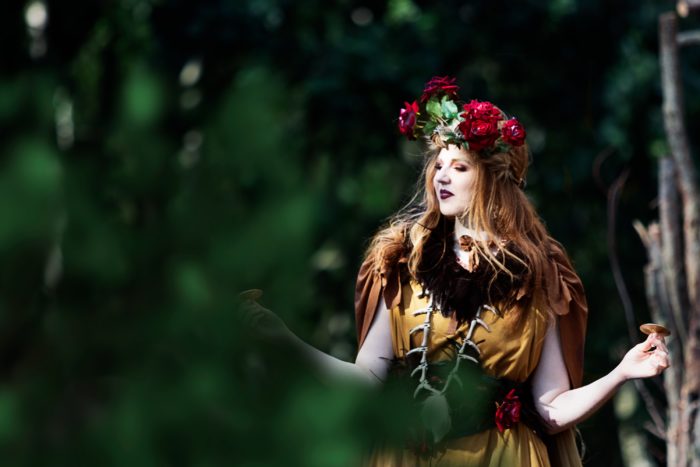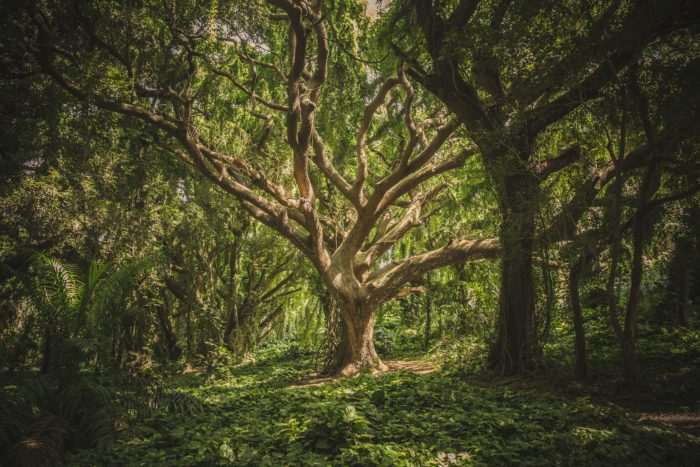We’re forgetting the natural world. So many of us now are spending longer and longer indoors, at offices, staring at computers, hiding from the outside world.
I come from a family who upheld long practiced Celtic beliefs and celebrations. Celtic tradition has always had a large focus on the natural world and the power of connecting with our environments… or rather, reconnecting. The Celts divide the year into 8 different parts, all separated by a festival to celebrate the changing of a season. 8 different parts, means that instead of just Christmas, Easter, Midsummer and Halloween.. There’s a festival every month and a half. How much fun does that sound?

But these are different kinds of festivals. They’re not your run of the mill music festivals, with bright lights, loud music and questionable food. They’re celebrations to honor and acknowledge the natural world. They recognize that humans are and have always been intimately connected with the cycling of the seasons. In spring we awaken, start new things, sow, plan, initiate, etc. Summer brings action, fruitfulness, abundance, and that go go go mentality. Autumn is a time when we start to polish things off, and reap the rewards of our hard work and action over the warmer months. Finally in winter, we slow down, tie everything up, snuggle in warm and reflect.
Lately, I’ve been exploring my heritage a bit more, and taking time to actually learn about the traditional practices that I took part in with my family as a child. My research led me, as always happens, down a log tunnel of twists, turns and new discoveries.
List of Celtic Festivals
Samhain (October 31)
The Celtic New Year and the beginning of darkness and winter.
Winter Solstice (December 21)
Mid-winter and stillness; longest night, shortest day.
Imbolc (February 1)
Start of spring; awakening.
Spring Equinox (March 20)
Mid-spring; rising upward.
Bealtaine (May 1)
Start of summer and the bright half of the year; taking risks outside the comfort zone.
Summer Solstice (June 21)
Mid-summer; longest day of the year.
Lughnasa (August 1)
Start of autumn and harvest.
Autumn Equinox (September 23)
Completion and the final harvest.
Benefits of connecting with nature
So why is a connection to nature so important to human beings and our personal and community health? It’s profoundly obvious when you look at basic human needs… and realize that nature caters perfectly to absolutely all of them. Need water? Nature has rain, rivers, oceans, and water-filled edible plants. Need food? Nature has fruits, vegetables, proteins, fats and all manner of minerals. Need shelter? Nature has every building material you could want. Everything is set out perfectly for us to live in peace and maintain a healthy life-style. In fact spending more time in nature not only improves our physical livelihood, but it can help to boost our mental and spiritual health as well.
This study shows that people who have more experiences in nature report better overall well-being and happiness. People who spend more time in nature or live in neighborhoods with more greenery socialize with more people than the average person. They are also more confident in their relate-ability to others, the ability to make new friends, and to try new things. Volunteering in nature has been shown to help people in excluded groups or minorities to integrate or reintegrate. Their connection to nature and their sense of accomplishment from interacting with nature, gave them a sense of purpose. They were able to find their meaning again. This is incredibly important for people in the current age of disconnection with our planet.

Remembering how perfectly composed and incredibly beneficial nature is, is the key to rekindling humanity’s respect for Earth. Festivities honoring and recognizing nature are a way of teaching more and more people about this. Through fun, movement, entertainment, and traditions of our ancestors, we can learn to once again have an awareness for our impact on the planet.
Nowadays we can all walk to the supermarket in winter and pick up some fresh oranges. However, it’s still true that food grown naturally is seasonal, and we can indeed still appreciate that just as much work goes into an orange regardless of the season. This appreciation of summer’s gift of abundance helps us to realize how much of a role nature plays. How important it is to keep things in balance, the sun, the rain, the frost, etc. Since I started to celebrate the seasons and their significance, I personally have become much more aware of the amount of resources, processes and co-operation of elements and animals it takes to produce the food that I eat. Not to mention the wood my house is built from and the water I drink.
Our ancestors lived in such reliance of the seasons that they had to be more connected to the Earth than many of us are now. This paved the way for them to make more conscious decisions and take steps to care for the planet.
We should be doing this too. All of us. We should be celebrating the sheer wondrous reality that we live in. Celebrating this, and recognizing what the natural world is, how it relates to us, and how delicate it is, is the key to a healthy future for humanity and this planet.
The Celts had the idea hundreds of years ago, through their celebrations of the changing seasons. Now I think it’s about time we revived these festivities.
Get more like this—Sign up for our daily inspirational newsletter for exclusive content!
__
Photo: Nicky Somers – Unsplash; Veeterzy – Unsplash.




